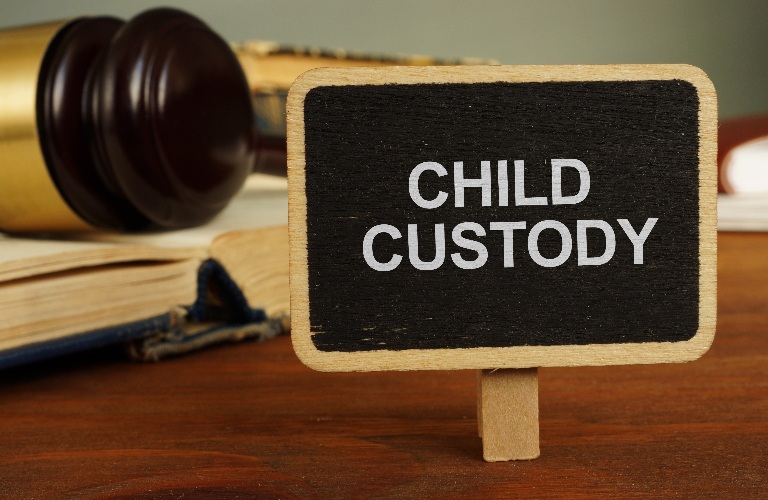How is Child Custody Determined in a Kentucky Divorce?

In a Kentucky divorce, one of the most emotionally challenging issues for parents is determining child custody. Kentucky law doesn’t focus on which parent “wins” – it focuses on the best interests of the child.
Under Kentucky Revised Statutes (KRS) §403.270, courts presume that what’s in the best interests of the child is joint custody and equal parenting time – unless evidence proves otherwise.
In this article, we will explore how child custody is determined in a Kentucky divorce and what factors the courts consider when making those decisions.
Types of Child Custody in Kentucky
Under Kentucky law, two main types of custody are recognized:
- Legal custody: this refers to a parent’s rights to make important decisions regarding the child’s upbringing, such as education, healthcare, religion, etc., and is usually shared jointly by both parents.
- Physical custody: this refers to where the child lives and how much time they spend with each parent. Depending on the circumstances, courts may order equal or unequal parenting time.
Kentucky law favors joint custody and shared parenting, but if that is proven to not be in the child’s best interests, the court can order otherwise.
The “Best Interests of the Child” Standard
Under KRS §403.270(2), courts in Kentucky will consider several factors in determining an arrangement that best serves the child’s welfare and happiness, such as:
- The parents’ wishes and, when appropriate, the child’s preference.
- The relationship and interaction the child has with parents, siblings, and other significant to the family individuals.
- The child’s adjustment to home, school, and community.
- The mental and physical health of everybody involved in- and close to the family.
- Any evidence of domestic violence or abuse, even if the child was not directly a victim of it.
- And finally, each parent’s willingness to encourage the child to have a relationship with the other parent.
None of these factors are decisive on their own – the courts will weigh them all in determining the child’s best interests.
Joint Custody and Equal Parenting Time
As mentioned above, Kentucky law presumes that joint legal custody, together with equal parenting time, will best achieve the happiness and welfare of the child.
In some cases, however, this presumption can be rebutted by showing that such an arrangement will not serve the child’s best interests, for example:
- Substance abuse or domestic violence.
- Unsafe living conditions.
- If a parent is unable to cooperate on parenting decisions.
Courts aim to promote co-parenting and stability, but they will adjust custody and parenting time schedules according to the child’s needs and family dynamics.
Temporary Custody Orders During Divorce
Temporary custody orders may be issued by the court whilst a divorce is pending, and they’re meant to provide structure and stability for the child. These orders will be in place until a final custody order is entered.
It is expected from both parents to follow the temporary custody orders, as violating them can impact the final custody determination. Additionally, temporary custody orders can help the court to practically observe what works best for the child.

Modifying Custody Orders
Sometimes, after a custody order is finalized, circumstances may change. Under Kentucky law, modification of custody orders is allowed if the change in circumstances is significant, or if the modification itself will better serve the child’s best interests.
Typically, a parent must wait two years before requesting modification, unless the child is in any kind of danger, or there are other urgent conditions to observe. Courts will evaluate such requests very carefully, so as to not disrupt the child’s life unnecessarily.
Why Legal Guidance Matters – And How We Can Help You
Custody disputes are undoubtedly very challenging, both legally and emotionally. One of our experienced Kentucky family law attorneys can help you by gathering and presenting evidence in support of your role as a capable and caring parent, and by guiding you through mediation and court hearings.
If you are facing a child custody dispute in Kentucky, contact Hoffman Walker & Knauf today. We will approach your case with the compassion you need, whilst providing you with strategic representation in protecting your parental rights.
Let’s work together in ensuring your voice is heard and your child’s best interests are served – call us to book a consultation now.

